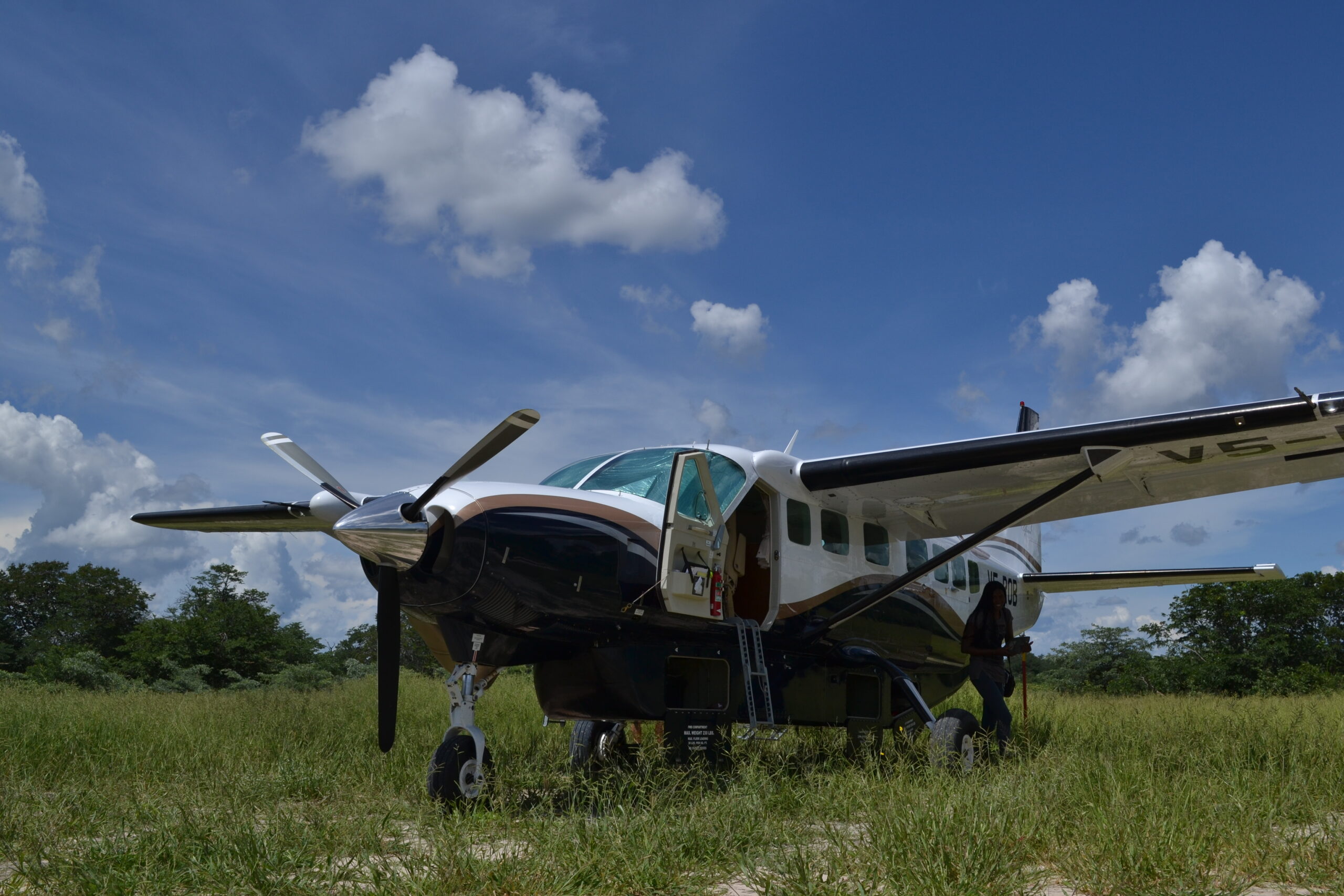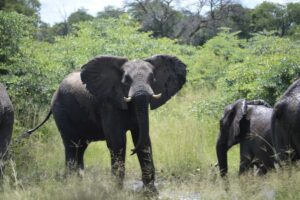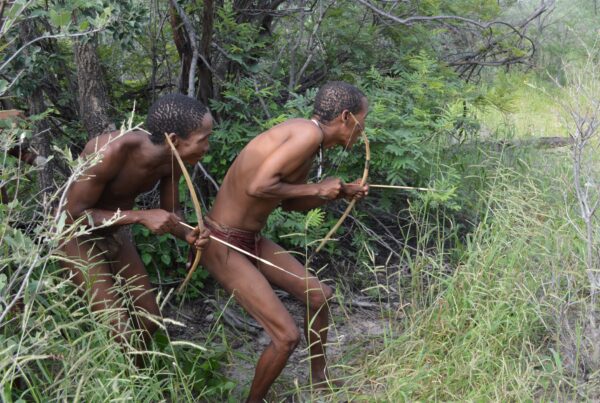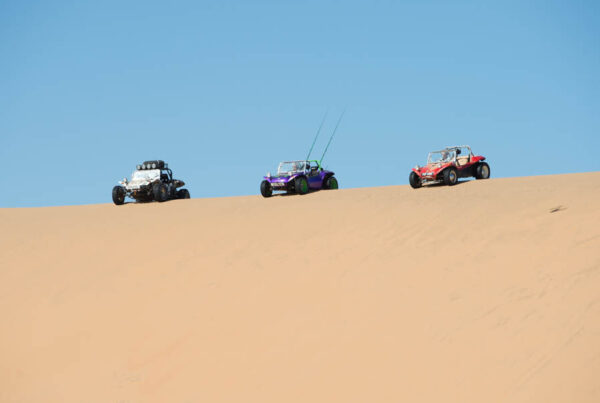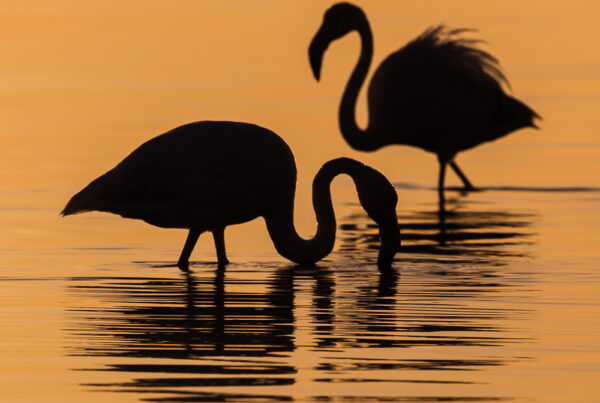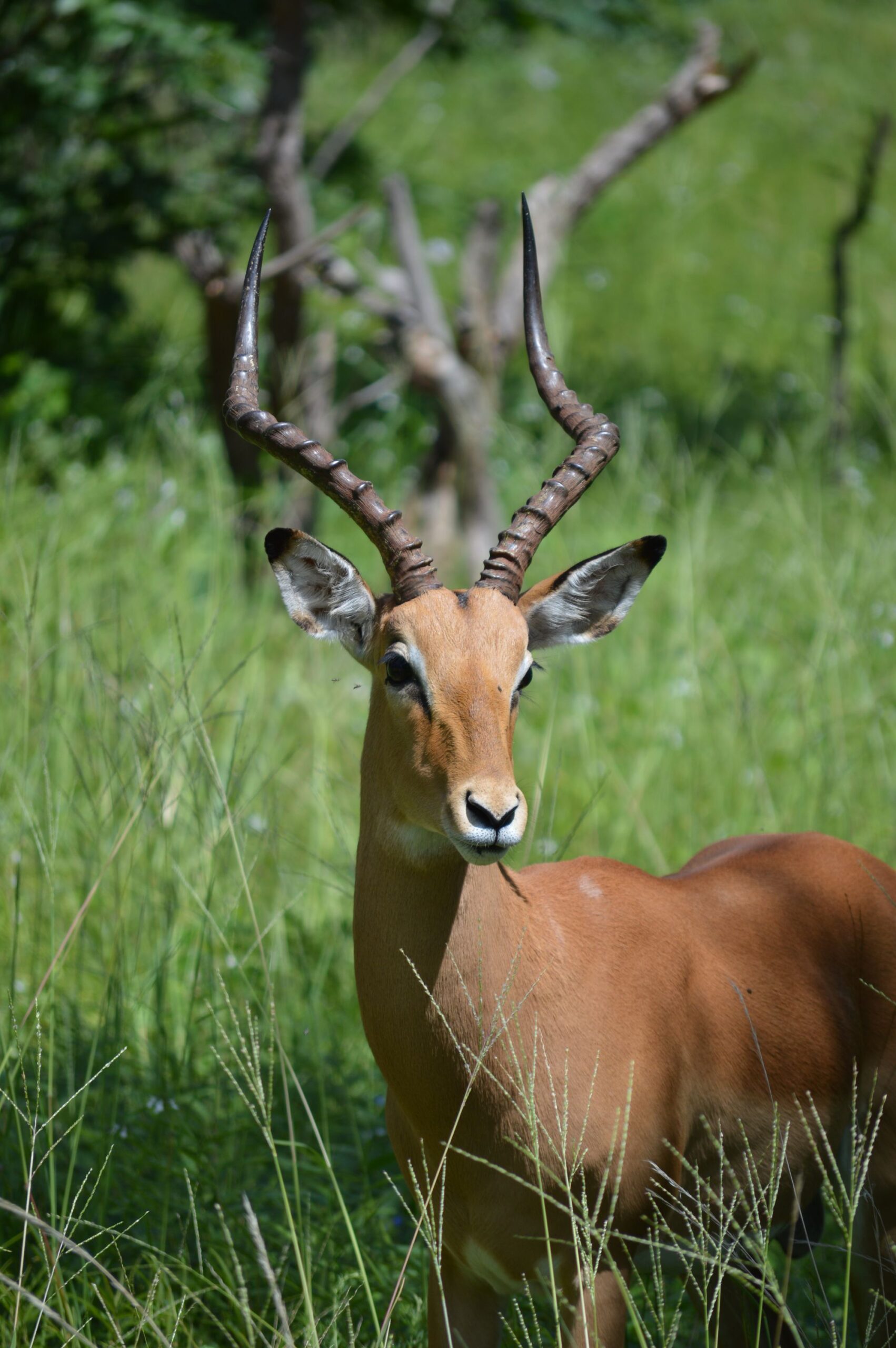
Photo by Joe Yogerst
It’s not nearly as famous at Etosha—primarily because the region was off-limits to tourists and other outsiders for nearly half a century—but Namibia’s Bwabwata National Park may be even more impressive both in terms of the number of species and the resident populations of those animals.
Stretching for more than a hundred miles across the Caprivi Strip between the Okavango and Kwando Rivers, the park also sits astride the great migration route between remote eastern Angola and the Okavango wetlands of northern Botswana.
While the migration is in full swing, the park serves as “home away from home” for more than 140,000 elephants, hundreds of thousands of antelope and creatures like the cape buffalo, wildebeest, African wild dogs and red lechwe that are rare or totally absent in other parts of Namibia.
African Profile Safaris offers customized fly-in safaris to Bwabwata including a choice of overnight accommodation in wilderness lodges primarily located on the banks of the two great rivers at either end of the park. One of the best is Nambwa Luxury Tented Lodge, which sprawls across a forested “island” in the middle of grasslands beside the Kwando River.
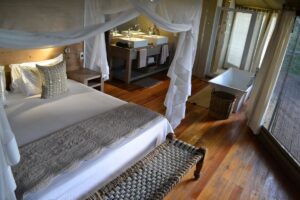
Photo by Joe Yogerst
Perched on stilts above the forest floor, the luxury tents offer plenty of creature comforts (king bed, brandy snifter, bathtub big enough for two) but the real treat is the view across the bush from the wrap-around balcony and the parade of wildlife outside. Like the kudu drinking from a nearby waterhole or the hippo grazing beneath my tent that night.
After an afternoon game drive along the western bank of the Kwando River comes a sunset cruise through the warren of waterways beside the lodge. It’s a relaxing way to end the day and discover how the Caprivi is basically a northern extension of the greater Okavango ecosystem. Similar landscapes, similar climate, similar wildlife, similar end-of-the-earth vibe.
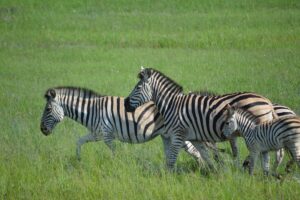 Unlike safari camps in many other parts of Africa, those in the Caprivi are mostly unfenced. “It’s a low-impact design that fits into the environment,” says Nambwa manager Linda Smit. “But it also means you have to be extra careful walking around the camp at night. Because you never know what you might run into in the dark — like the female leopard who likes to hang out around our swimming pool.”
Unlike safari camps in many other parts of Africa, those in the Caprivi are mostly unfenced. “It’s a low-impact design that fits into the environment,” says Nambwa manager Linda Smit. “But it also means you have to be extra careful walking around the camp at night. Because you never know what you might run into in the dark — like the female leopard who likes to hang out around our swimming pool.”
